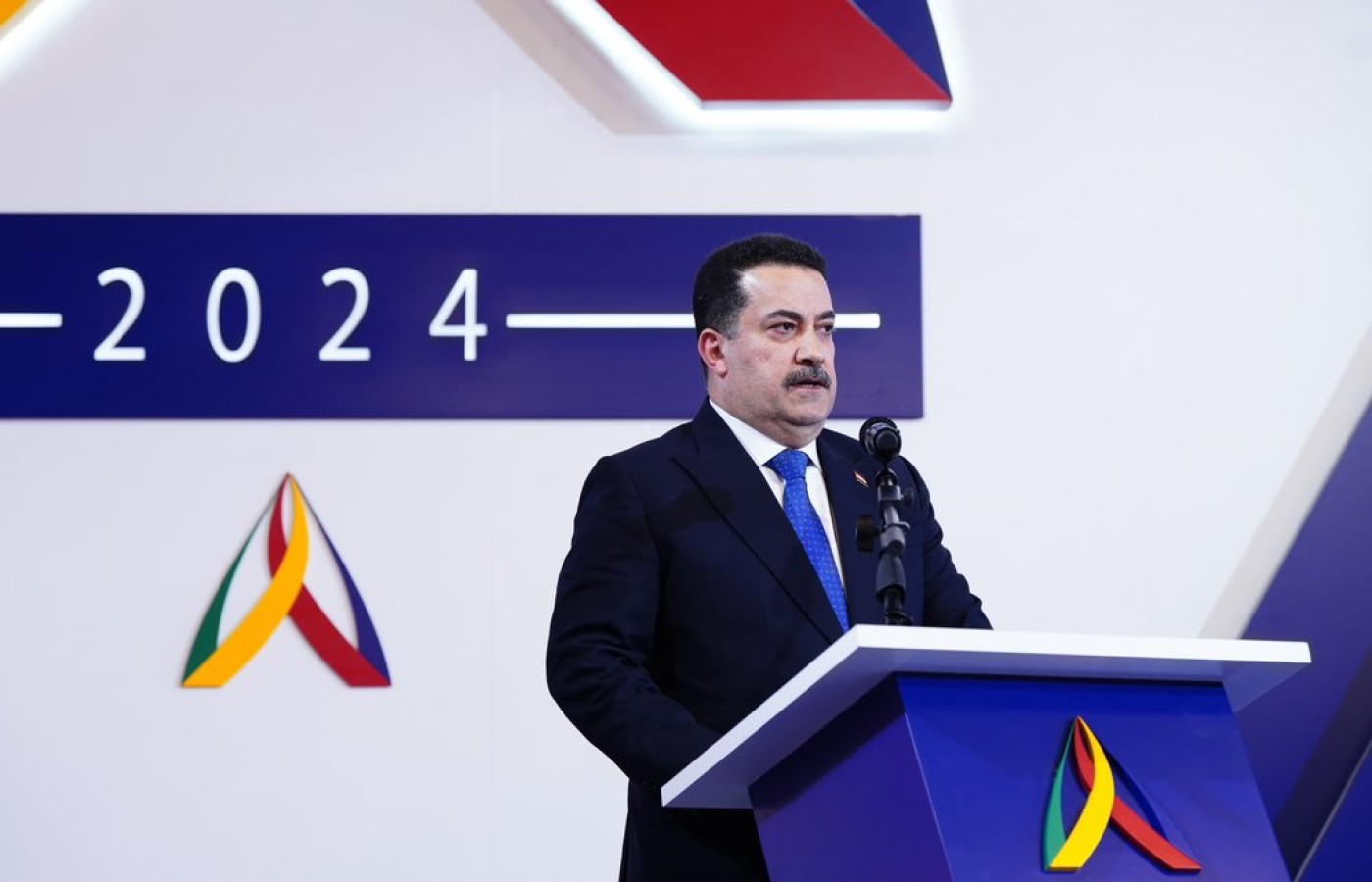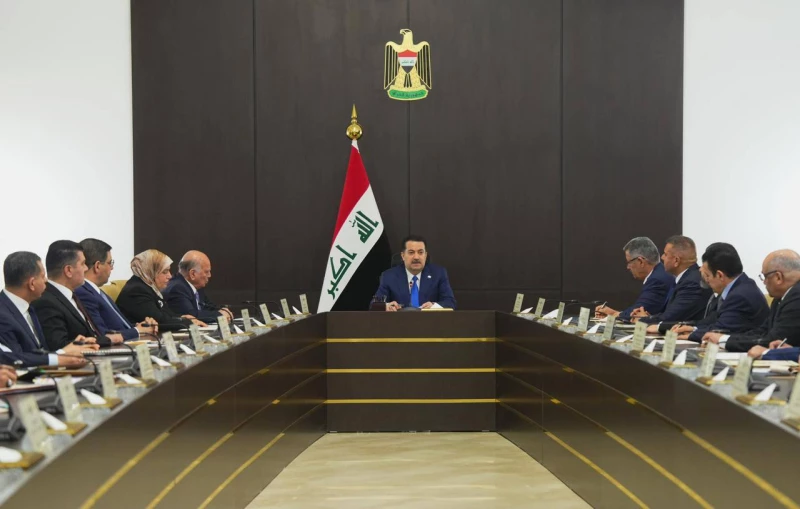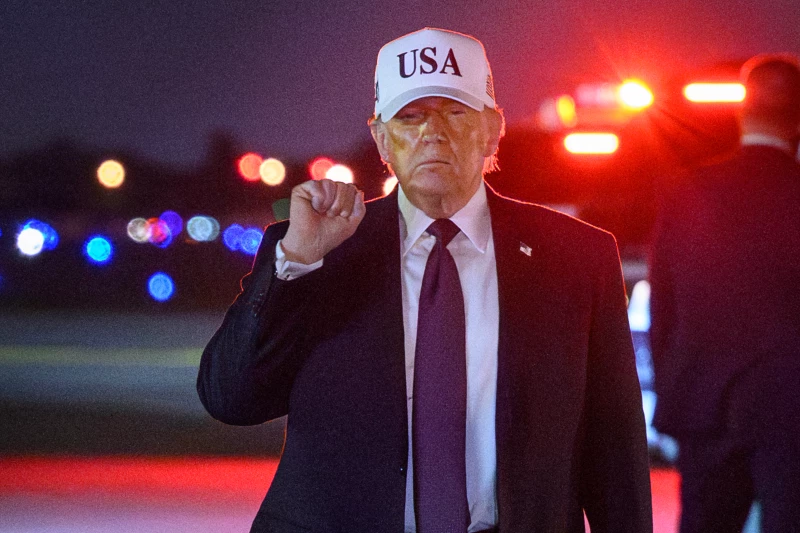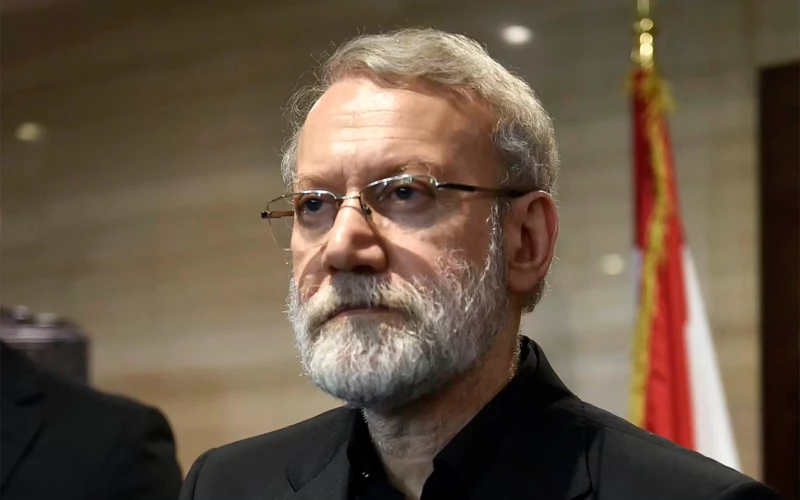In the past few days, there has been a clear consensus among top Iraqi officials regarding the necessity of the US-led global coalition.
Official statements from Iraq's highest levels unmistakably underscore a harmonious stance on the ongoing role of the coalition.
It is evident that Iraq aims to maintain the coalition's presence even if its formal mission concludes. Iraqi leaders have emphasized that this need transcends mere intelligence and aerial support.
Simultaneously, and within a narrow timeframe, top Iraqi figures including Commander-in-Chief of the Armed Forces and Prime Minister, Mohammed Shia al-Sudani, Chief of Staff of the Army, Abdul Amir Yarallah, and National Security Advisor, Qasim al-Araji, addressed the future of the alliance and the dynamics of its relationships with member countries, notably the United States.
They reiterated Iraq's stance of rejecting any role as a launchpad for aggression against any nation, underscoring the imperative of safeguarding Iraqi sovereignty.
In his speech at the Rafidain Forum, Sudani stressed that the conclusion of the global coalition's presence does not signify a complete rupture with its member states, particularly the United States.
He highlighted that the reduced threat posed by ISIS, operational considerations, and the evaluation of security capabilities all underpin the necessity of upholding this alliance.
Yarallah articulated that the global coalition's necessity primarily lies in intelligence and aerial support.
Concurrently, Araji reiterated Iraq's commitment to refrain from serving as a launching point for aggression against any nation, emphasizing the paramount importance of preserving Iraqi sovereignty.
These statements provide clarity on Iraq's expectations from the global coalition or its member states in the event of the coalition concluding its mission and transitioning to a phase of bilateral partnerships.
Iraq is unwilling to compromise its vital need for intelligence, cybersecurity, and other essential services offered by the coalition.
At the moment, key necessities for Iraq encompass intelligence and aerial support. Therefore, concluding the mission without assurances of ongoing bilateral partnerships with member states, particularly the United States, is deemed unfeasible.
Iraq is actively seeking guarantees that these states will continue to furnish the necessary support, encompassing both intelligence and aerial assistance, even as Iraq makes significant strides in these domains.
Despite variances in perspectives between Iraq and the United States regarding the gravity of the U.S. military withdrawal from Iraq, as well as conflicting statements from officials of both nations on this issue, Iraq remains steadfast in its determination to avert a withdrawal that would compromise its essential requirement for coalition forces, particularly in intelligence and aerial support.
Yarallah's remarks imply a sense of urgency from the U.S. regarding withdrawal from Iraq, whereas U.S. envoy to the coalition, Ian McCary, affirmed that there are presently no plans for troop withdrawal from Iraq.
McCary emphasized ongoing dialogues aimed at persuading Iraq of the importance of sustaining the alliance, highlighting that these discussions are centered on establishing a lasting framework for security cooperation between the two nations.
Essam al-Fayli, a political science professor at al-Mustansiriya University, described these statements as an "effort to alleviate the growing tension within Iraq, which has intensified due to increased pressure from various armed factions, leading to heightened rhetoric and attacks on facilities housing American advisors.”
Fayli underscored that the Iraqi government appears steadfast in its pursuit of intelligence and cybersecurity cooperation, acknowledging that any strain between Iraq and the alliance, or the U.S., will have far-reaching ramifications across all facets of life.
According to Fayli, Iraq's reliance on the global coalition stems from its substantial inventory of American tanks and aircraft, including Abrams tanks and F-16s.
These assets have entailed considerable expenses for Iraq, leading the Iraqi government to be hesitant about forfeiting the expertise of technical specialists contracted in this domain for the long term.
Fayli underscores additional diplomatic, political, and security considerations that, in his view, drive Iraq to uphold balanced relations with both the United States and European nations.
The imperative for intelligence and aerial capabilities, among other factors, reinforces Iraq's commitment to maintaining these balanced relationships with coalition countries, particularly the United States.
This encompasses assistance in international forums, as well as in economic, energy, and development initiatives.
Furthermore, Fayli highlights a considerable challenge confronting Iraq, manifested in the aspirations of various regional nations vying for influence within Iraq's borders.
This underscores the importance for the Iraqi government to establish transparent relationships with coalition nations, while acknowledging that the United States also pursues its interests through its presence in Iraq, Fayli argues that withdrawing in favor of other forces would not be advantageous for the United States.
Fayli concluded by asserting that the NATO alliance, which includes member countries of the global coalition, could serve as an alternative framework for coordinating Iraq's relationships with these nations, including the United States.
He observes that NATO countries are exploring potential opportunities linked to Iraq, signaling a potential avenue for enhanced collaboration and engagement.
Iraqi writer and journalist Hadi Jalo echoed Fayli's perspective on the potential role of NATO as an alternative to the global coalition.
He envisions opportunities for bilateral relations or collaboration between Iraq and these countries within either the global coalition or the NATO framework, which they share.
This is particularly pertinent concerning the United States, as Western nations broadly comprehend Iraq's circumstances, the intricacies within the region, and hold significant interests therein.
Jalo underscores that the necessity for American forces or consultations pertains to specific concerns that can be addressed through the organization of a bilateral relationship between Iraq and the United States.
These concerns encompass intelligence affairs, aerial support, and satellite-based intelligence assistance, among others. He highlights that the statements made by security leaders are contingent upon discussions with the Commander-in-Chief of the Armed Forces, an evaluation of the on-ground circumstances, and the substantial advancement of Iraqi forces. The decision regarding this matter is intricately linked to the vision and comprehension of the prevailing situation.



 Facebook
Facebook
 LinkedIn
LinkedIn
 Telegram
Telegram
 X
X


